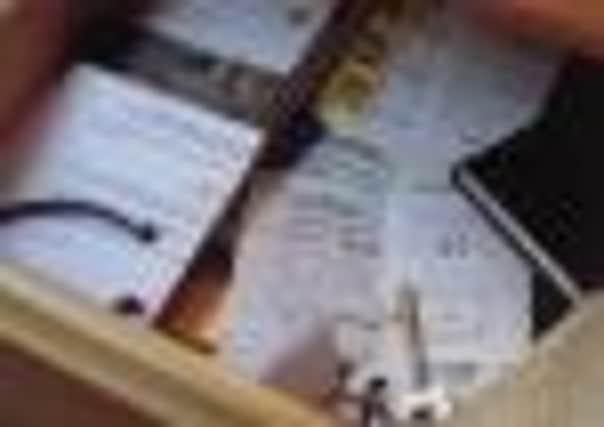Search for owners of missing millions sitting in the bank


There are few people who haven’t daydreamed of discovering a winning lottery ticket lurking in the pocket of a rarely-worn coat or inheriting a fortune from a long-lost relative.
However, with the arrival of Rightful Owners in the UK, a few more of us might be on the receiving end of an unexpected windfalls.
Advertisement
Hide AdAdvertisement
Hide AdThe company which has launched in Britain after more than 30 years of trading in the US plans to track down the forgotten owners of shares, cash, fund holdings, insurance payouts and pensions. It reckons UK fund managers could hold more than £12bn of unclaimed assets and one person in 10 could be the owner of assets which they know nothing about.
Rightful Owners doesn’t take enquiries from the general public, but instead works with institutions, with the aim of tracking down the owners of dormant accounts.
Derick O’Brien, Rightful Owners commercial director, says: “It’s a fact of life that people often forget to write down what they own. It’s a human problem, because we all have busy lives.”
The firm obtains data and information about unclaimed assets, and uses public and private information to make connections within its database. The firm then contacts individuals, who either contact asset managers directly to reclaim their money, or ask Rightful Owners to act on their behalf for a fee.
Advertisement
Hide AdAdvertisement
Hide AdO’Brien says: “In the USA, when an account is dormant for three years, that money is escheated to the state, and our business there is to work with companies to stop this happening. Here, the state cannot take money in the same way. But we will work with financial services companies to encourage them to find rightful owners for those assets typically classified as ‘Gone Away’.”
While any fees paid to Rightful Owners on this side of the Atlantic will be optional, its emergence could rekindle the debate about “heir hunters”, firms which trace money left by people who die with no will and no relatives, on behalf of hopeful clients. A Which? Money report in August 2011 alleged some firms charge 25-40 per cent of the inheritance as fees, and warned the sector is currently unregulated.
However, finding assets of long-lost relatives has become easier following the launch of the Government’s Unclaimed Assets Scheme. The legislation enabled banks and building societies to transfer money from dormant accounts (untouched for 15 years or more) to a reclaim fund, which keeps some money for eventual repayment to rightful owners and hands the rest to the Big Lottery Fund for social or environmental purposes.
Some financial firms already have their own money tracing teams. Harrogate-based Engage Mutual, formerly Homeowners Friendly Society, has traced the owners of £2.58m of unclaimed funds. In one case, Engage traced a policy with the Civil Service Benefits Society, later taken over by Engage. Although the parents had forgotten about it, it produced a surprise lump sum to help their son through university studies.
Advertisement
Hide AdAdvertisement
Hide AdFamilies who believe they may be owed money by banks, building societies and National Savings & Investments (NS&I) can use the website www.mylostaccount.org.uk – a free service run jointly by the British Bankers’ Association, the Building Societies Association and NS&I.
As much as £400m of unclaimed money could be sitting in bank and building society accounts, while NS&I currently holds 863,330 unclaimed prizes worth a total of £43.3m. The oldest is £25 won by a man in South Yorkshire in November 1957, who has a total holding worth £100 but has been uncontactable for 55 years.
Three NS&I prizes of £100,000 each are also unclaimed, all won by female Premium Bond holders since 2007. One has a total Premium Bond holding of only £6. More than 22m people own Premium Bonds, and the NS&I tracing service has so far reunited more than 184,200 accounts worth more than £243m with their original owners. The service also tracks down accounts people may have forgotten about if they were opened for them as a child, or if they lost track of savings after moving house.
Finally, for those nearing retirement, there may be useful money to be had from pensions pots paid into long ago. The Pension Tracing Service, a free helpline run by the Department for Work and Pensions, tracks down pension contributions throughout a career if applicants give details of previous employers, their National Insurance number, and possibly their address at the time they worked for each employer.